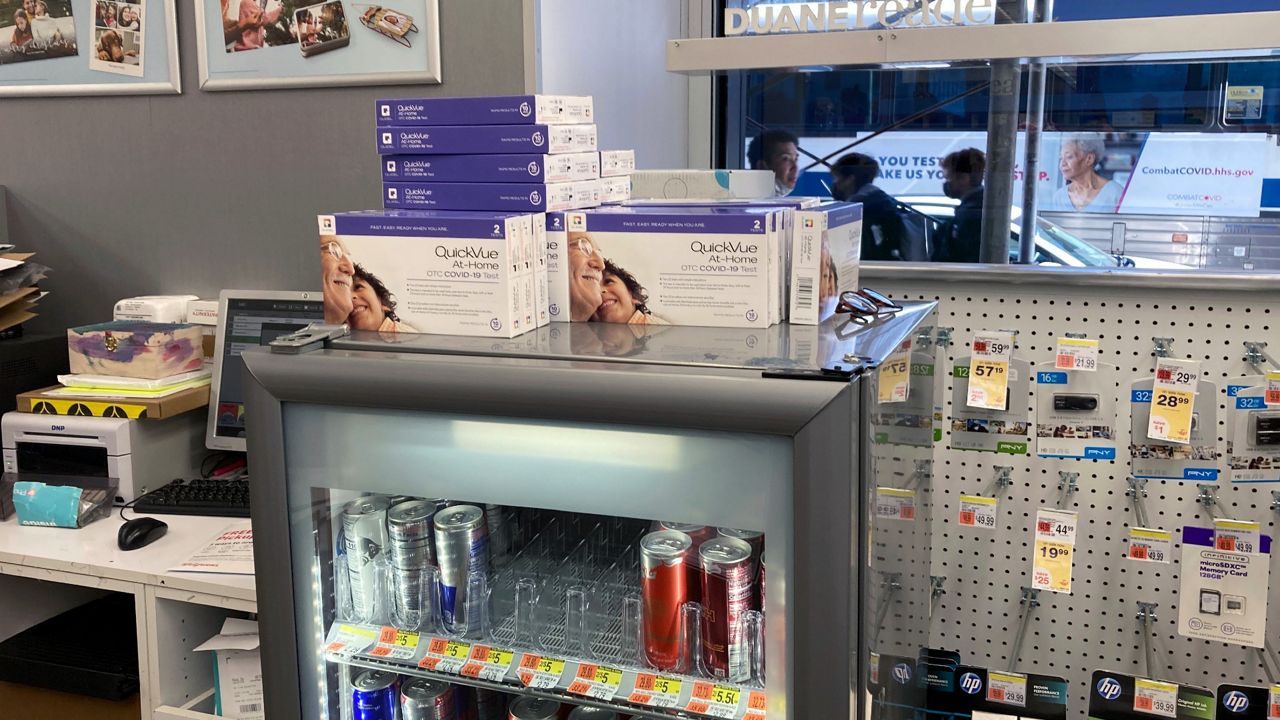NEW YORK — COVID-19 cases linked to an omicron subvariant known as BA.2 have been on the rise in New York City, but there is no current evidence that the strain leads to more severe illness, health officials said Friday.
As of Friday, approximately 30% of the city’s reported COVID-19 cases were BA.2 infections, Dr. Celia Quinn, the health department’s deputy commissioner of the division of disease control, said at a news briefing.
What You Need To Know
- As of Friday, approximately 30% of the city's reported COVID-19 cases were BA.2 infections, health officials said
- BA.2 is "a sublineage of omicron, and it has ben increasing [in the city] over the past several weeks," Dr. Celia Quinn, the health department's deputy commissioner of the division of disease control, said at a news briefing
- Countries in Europe and Asia have been seeing new COVID-19 surges due in part to the new variant, but the city is still at a "low" COVID-19 alert level, the city's health commissoiner, Dr. Ashwin Vasan, said
- There is "no evidence that BA.2 causes more severe illness, increases risk of hospitalizatoin, or that our current vaccines offer less protection against it," Vasan said
“BA.2 is a sublineage of omicron, and it has been increasing over the past several weeks. We’ve been seeing that,” Quinn said. “At the same time, the overall case numbers have been relatively stable, with some increase in the last few days.”
“It may be a little bit more transmissible,” she added. “And that’s why it is increasing in proportion to the other circulating omicron strains.”
But while countries in Europe and Asia have been seeing new COVID-19 surges due in part to the variant, the five boroughs are still at a “low” COVID-19 alert level, the city’s new health commissioner, Dr. Ashwin Vasan, said.
New York City on Friday reported a 1.49% average COVID-19 infection rate over the past seven days, with hospitalizations and confirmed deaths trending downward.
“I think the important thing to remember, and to emphasize for New Yorkers, is that currently there’s no evidence that BA.2 causes more severe illness, increases risk of hospitalization, or that our current vaccines offer less protection against it,” Vasan explained. “But we continue to monitor this, and we continue to stay vigilant.”
City health officials are “tracking these variants very closely,” the commissioner added.
“I just want to sort of empathize and say that I understand New Yorkers’ concern, given where we’ve been over the last two years, and the successive ways that rising cases in other parts of the world would lead to anxiety,” he said. “That’s completely understandable.”
However, preliminary research has found that the BA.2 variant may impact the lungs less than early-pandemic COVID-19 strains, Vasan said.
“I think there’s some suggestion that this subvariant may be similar to omicron in some ways, might be more associated with symptoms above the lungs, less respiratory compromise and more upper respiratory tract — you know, the stuffy nose, the itchy eyes, the runny nose,” he said. “And so I think there is some suggestion that BA.2 is following that same trend, but it’s still quite early.”
Vasan on Friday also addressed the city’s decision to keep its indoor mask mandate in place for children under the age of five who are enrolled in city-run programs — a policy that has drawn the ire of many parents.
“We have consistently seen disproportionate hospitalization rates in the under-five population compared to other childhood groups, and as a father of a two-and-and-a-half year old, and two other older kids, I want to keep them as safe as possible,” he said. “I would love nothing more than to send my son to day care without a mask, but as a scientist, and as a doctor and epidemiologist, I want to keep him safe, especially because he’s not eligible for a vaccine.”
“We’re always looking at the data. As I’ve said, we have very clear benchmarks of how we’re assessing risk, and we’ll keep reevaluating whether that mandate should stay in place,” he added. “And right now, we think it should stay in place.”
Vasan also said the city mandate requiring that workers who “perform in-person work or interact with the public in the course of business” get a COVID-19 vaccine is “indefinite at this point.”
“People who have tried to predict what will happen with this pandemic have repeatedly found egg on their face, as they say, and I am not going to do that here today,” he said, adding that the mandates "have been among the most important life-saving policies that we have put into place through this pandemic."
"And [they have] helped us build up a wall of immunity, a bulwark against whatever this virus does to change or may throw at us in the future," he said.



